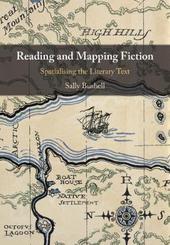
|
Reading and Mapping Fiction: Spatialising the Literary Text
Hardback
Main Details
Description
Do we map as we read? How central to our experience of literature is the way in which we spatialise and visualise a fictional world? Reading and Mapping Fiction offers a fresh approach to the interpretation of literary space and place centred upon the emergence of a fictional map alongside the text in the late nineteenth and early twentieth centuries. Bringing together a range of new and emerging theories, including cognitive mapping and critical cartography, Bushell compellingly argues that this activity, whatever it is called - mapping, diagramming, visualising, spatialising - is a vital and intrinsic part of how we experience literature, and of what makes it so powerful. Drawing on both the theory and history of literature and cartography, this richly illustrated study opens up understanding of spatial meaning and interpretation in new ways that are relevant to both more traditional academic scholarship and to newly emerging digital practices.
Author Biography
Sally Bushell is Professor of Romantic and Victorian Literature in the Department of English Literature and Creative Writing, Lancaster University. She is interested in mapping texts in a range of ways (across process; empirically; digitally). She is also principal investigator on the Arts and Humanities Research Council (AHRC)-funded literary mapping project Chronotopic Cartographies.
Reviews'... the author crafts a revelatory hermeneutic tool for exploring the virtues of literature by innovatively blending aspects of cognition, cartography, and criticism. Bushell focuses on the 18th and 19th centuries - including reflections on genres and individuals, but her thinking extends into the digital age.' H. I. Einsohn, Choice '... this monograph offers an innovative method for understanding the literature and maps of the long-nineteenth century, original ways of reading the century's new and dominant genres, an explanation of what happens to us when we encounter maps in novels as readers, and a guide to the possibilities of future digital humanities projects.' Sophie Welsh, Romance, Revolution and Reform
|